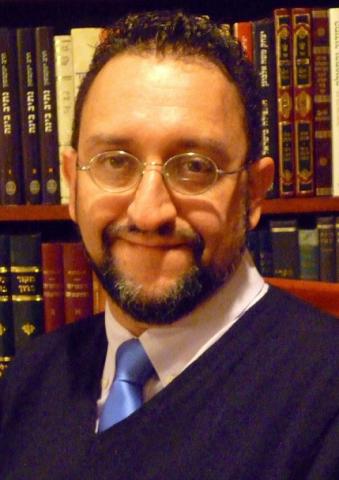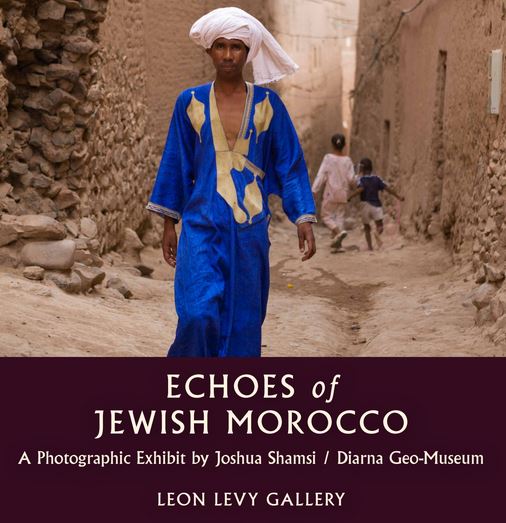
In Memory of Dr. José Nessim, zt’l,
Legendary Founder of the Sephardic Educational Center

Sephardi Ideas Monthly is a continuing series of essays from the rich, multi-dimensional world of Sephardi thought that is delivered to your inbox on the second Monday of every month.
This month’s featured essay, “To Unite, Not to Divide: Rav Ouziel’s Big Sephardic Ideas,” was written especially for Sephardi Ideas Monthly by Rabbi Daniel Bouskila.

As the Director of the Sephardi Educational Center, Rabbi Bouskila is developing a think tank that explores the unique halakhic and philosophic worldview of Classic Sephardic Judaism, as articulated in prior editions of Sephardi Ideas Monthly by Professor Daniel J. Elazar, Rabbi Marc Angel, and Professor Zvi Zohar.
Centered at the SEC’s historic campus in the Old City of Jerusalem, Rabbi Bouskila, a veteran of the IDF’s Givati Infantry Brigade, “promotes and fosters intellectual growth, spiritual development, a traditional yet modern approach to halacha, and a meaningful engagement with Israel and contemporary Jewish issues” in Israel and throughout the Diaspora. A frequent columnist for the Los Angeles Jewish Journal, Rabbi Bouskila is currently at work on a book about S.Y. Agnon, the first Nobel laureate for modern Hebrew literature (1966).
Rabbi Bouskila’s essay focuses on the thought of Israel’s first Sephardi Chief Rabbi, Rav Ben-Zion Meir Hai Ouziel (1880-1953), “the 20th century’s most authentic embodiment of the classic Sephardic rabbinic tradition.” In particular, he explores how Rav Ouziel reconciled a passion for Jewish unity with a commitment to Sephardi tradition.
Rav Ouziel viewed the division of the Jewish people into “Ashkenazim” and “Sephardim” as an historical accident born of the Diaspora and thus “alien to the essence of the Jewish people.”
Since no Jew is essentially Ashkenazi or Sephardi, Rav Ouziel did not ultimately view the Sephardi tradition in ethnic terms. He believed, rather, that the many-sided Sephardi tradition of “Talmudic scholarship, practical Halakhic decision-making, philosophical inquiry, poetic creativity, Torah interpretation and mystical speculation,” constitutes “an intellectual-spiritual framework” that is fitting for “the entire Jewish people.”
Rav Ouziel’s expansive understanding of Jewish unity and the Jewish tradition reflects a classic form of Sephardi Judaism that has practically disappeared from the contemporary Jewish scene.
With a view towards revitalizing Rav Ouziel’s position, essential as it is to promoting the future flourishing of the Jewish people, Sephardi Ideas Monthly proudly presents Rabbi Bouskila’s essay, “To Unite, Not to Divide: Rav Ouziel’s Big Sephardic Ideas.”
~~~~~~~

Join the American Sephardi Federation & The Times of Israel on Sunday, February 15th, at the Waldorf Astoria New York to honor some of Israel’s most influential citizens (entrepreneurs, philanthropists, political and military leaders, celebrities) and friends. To RSVP, please click here or call 1-844-864-4252. Email or call (212-294-8350) us to learn about a special rate for ASF members.
~~~~~~~

Come visit ASF’s Leon Levy Gallery at the Center for Jewish History (15 West 16th Street) to view “Echoes of Jewish Morocco: A Photographic Exhibit by Joshua Shamsi for the Diarna Geo-Museum” on display now through 20 March.
~~~~~~~
Donate now and your tax-deductible contribution will help ASF “Connect, Collect, and Celebrate” Sephardi culture throughout the year with engaging programs and compelling publications.

Contact us by email or phone (212-294-8350) to learn about opportunities to underwrite our newly designated office spaces and publications in honor or memory of loved ones.